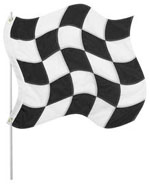How to lose weight fast might seem like too big a challenge. There are good reasons for that. Here is what happens when you overdo quick weight loss.
.
.
.
.
.
.
.
Choosing How To Lose Weight Fast
The most common idea the pops into everyone’s mind when contemplating weight loss is to eat less. Let’s consider that for a moment. How much less? How fast can weight loss be?
Low-calorie diets
Low-calorie diets are loosely defined as those that create an energy deficit of 500–1,000 calories per day – meaning that you have to reduce your daily intake by that amount. The general results of low-calorie diets, without considering the types of foods in the diet, are routinely about 1-2 pounds per week.
That is as fast as you can go without starving.
Very low-calorie diets
These are defined by daily intakes of 200–800 Calories total. Without hormonal intervention, this level of intake creates starvation. The average loss for starvation diets is about 3-5 pounds per week.
That is as fast as you can go by starvation alone. Depending on many other factors, most importantly hormone balance, starvation may not be that fast, and may not lead to any weight loss at all.
Side Effects of Quick Weight Loss
The biggest side effects entail the proportional loss of fat vs. muscle vs. water. These are highly variable, although a low-carb calorie restriction diet will lead to losing mostly water weight for the first week or so. Generally calorie restriction causes an equal loss of fat and muscle, which is not necessarily desirable. Fat loss should be the goal.
Here are the most common side effects of quick weight loss:
- Subsequent weight re-gain
- Lowered metabolism, causing future attempts at weight loss to become more difficult, and making weight gain easier
- Muscle atrophy
- Risk of developing Eating Disorders, especially Anorexia Nervosa or Bulimia Nervosa, even if initial intentions of dieting were health-wise
- Prolonged hunger
- Depression
- Reduced sex drive
- Fatigue
- Irritability
- Fainting
- Sinus problems (especially post-nasal drip)
- Rashes
- Acidosis
- Bloodshot eyes
- Gallbladder disease
- Seizures
- Malnutrition, possibly leading to death
- Constipation, due to lack of food-intake
- Dehydration, due to lack of fluid-intake
Even if you know how to lose weight fast, the results and the adverse consequences are not worth doing so.
Advising against quick weight loss,
Dr. D

Leave a Reply